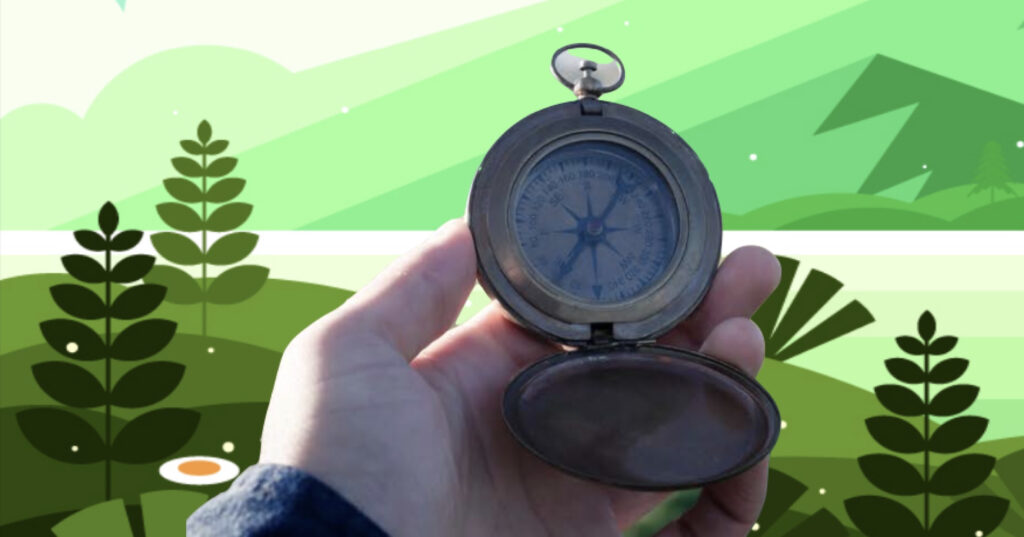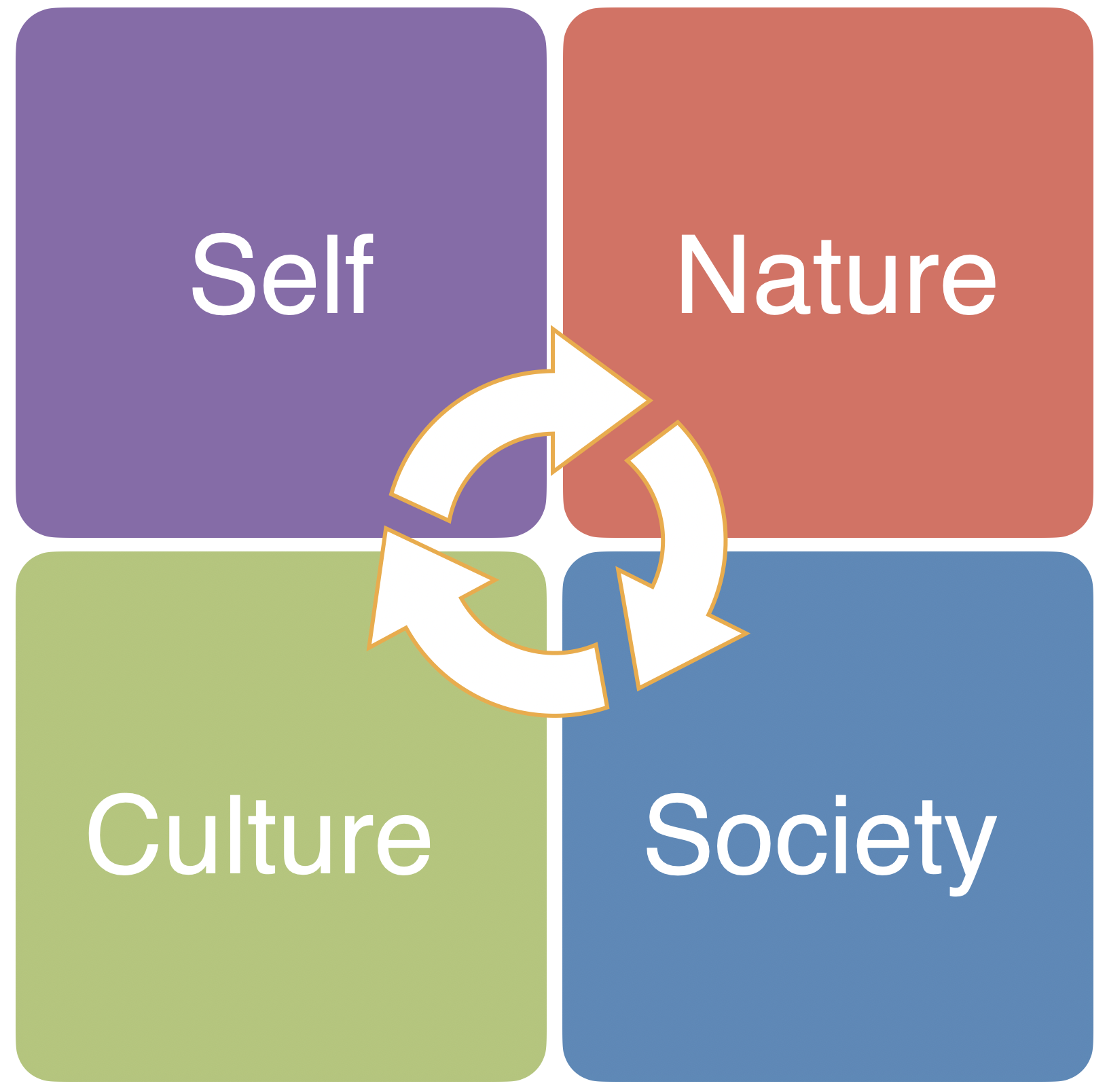
Introduction
Almost two decades ago, I began my journey with Integral Theory, first as a student and then as a teacher. Recently, I decided to structure the “meditations” of the blog and my courses around the four fundamental perspectives of the theory: Self, Nature, Culture and Society. These are represented by the Four Quadrant Map, an innovative cognitive tool of Integral Vision. In this article, we will analyze these primary perspectives in detail, exploring how they interact with each other and how, collectively, they compose a unified system that mirrors the complexity of human experience.

Method
This approach derives from the work of American philosopher Ken Wilber, one of the most significant contemporary thinkers, known as Integral Theory, his vision is based on the idea that no single theory can fully explain the vastness of human experience. Based on this assumption, Wilber has developed a model for understanding reality that embraces and integrates the major perspectives by situating them in four primary areas. Here is a brief description of each area:

Self_ the path of identification
In integral philosophy, personal identity is not seen as static, but as a dynamic path of evolution through various stages. It begins at an egocentric, self-centered stage, progresses to an ethnocentric stage, influenced by one’s culture, and culminates in a world-centered perspective, which recognizes the interconnectedness of all forms of life and existence. This journey of self-knowledge involves the exploration of one’s inner experiences, beliefs, values and motivations. Understanding this evolution contributes not only to personal growth but also to improved interactions with others and the surrounding environment.

Nature_from the body to the stars
By Nature is meant not only as the external environment that surrounds us, but also an integral part of our being. This perspective prompts us to reflect on how our personal development and daily choices are intertwined with bodily perceptions and nature. The relationship between Self and Nature is fundamental to understanding our interconnectedness with the environment and the impact of nature on human development. It is an invitation to live more sustainably and to recognize our role in the larger ecosystem.

Culture_reflection of the community
Culture, from an integral perspective, refers to the shared beliefs, values, practices and norms of a particular group or society. It includes language, customs, traditions, art and social structures, and plays a significant role in shaping individual identity and behavior. Understanding cultural differences and similarities is essential to promoting empathy, communication and cooperation among different groups, recognizing that each group has its own beliefs and values that deserve respect and understanding.

Society_structure and processes
Society organizes individuals into communities and social groups, including institutions, government systems, economic structures and interpersonal relationships. Ken Wilber highlights how each social component, from economies to behavioral norms, shapes individual and collective behaviors and influences values and opportunities for growth. A holistic and integral look at this complexity reveals how social dynamics contribute significantly to human well-being and development.
The Interconnection of Primary Perspectives
Through an integral lens, we can see how these perspectives, or viewpoints, are not separate entities, but parts of an interconnected whole. Exploring through an integral lens the interaction between the primary dimensions of life allows for a more complete understanding of the human experience, and the contexts in which we can act. Highlighting and emphasizing this interdependence helps us better understand how actions in one area can affect all other aspects, promoting a more inclusive and sustainable vision of progress
Conclusion
Adopting an Integral vision illuminates our perception of the world, highlighting how the various aspects of human life are closely connected. These principles provide a framework for analyzing the complex dynamics related to personal and collective development, social change, environmental sustainability and cultural evolution. By bringing together the perspectives of Self, Nature, Culture and Society, we gain a more nuanced and holistic view of the mutual relationships among all elements of the human experience. Understanding these connections enriches not only our personal lives but also our actions, making us more caring and responsible toward ourselves, others and the planet
